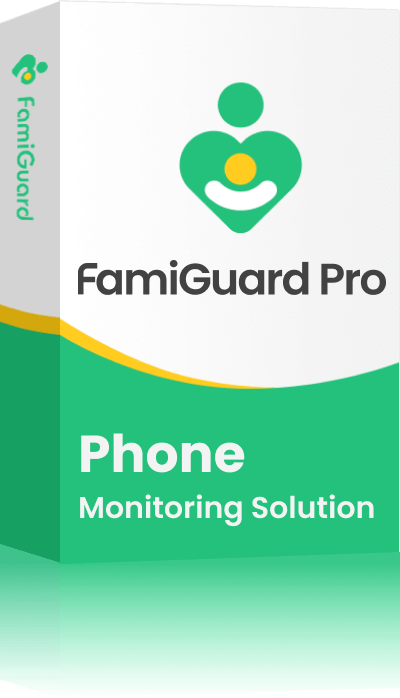FamiGuard Support: Monitor Devices with Others' Permission.
The popular words that kids use change quickly, that's the reason why even some parents see what their children are typing, but they can't understand what they are talking about. Learning more about youngster slang words will help parents grasp their kids' communication better, and in this article, we will tell you what TMB means.

Table of Contents
Part 1: What Is TMB Meaning?
"TMB" is a popular abbreviation. But what exactly does TMB mean on Instagram?
The basic meaning of TMB is "Text Me Back". This is used when someone wants to respond via text. However, the terms "Tag Me Back" and "Tweet Me Back" are more appropriate in the context of Instagram. "Tag Me Back" is used when a user wishes to be tagged in a post or story, usually as part of a reciprocal agreement or challenge. While "Tweet Me Back" is more commonly used on Twitter, it may also be seen on Instagram when users cross-post tweets. There are more other meanings of TMB:
- Take Me Back (TMB): The phrase "Take Me Back" (TMB) is commonly used to recall a happy memory.
- Tag Me Back (TMB): A term used on forums and web pages to request to be tagged in a post or photo.
- Trojan Marching Band (TMB): The University of Southern California's marching band, The Spirit of Troy (TMB), is well-known.
- Try Me, B*tch (TMB): An aggressive phrase used to test someone's patience or talents.
- Text Me, B*tch (TMB): Used to prompt friends to text back, especially if they have been unresponsive.
Part 2: How Is TMB Used? Use Cases & Examples

While "Text Me Back," "Tag Me Back," and "Tweet Me Back" are the most prevalent interpretations of TMB, the acronym can have multiple meanings depending on the situation. For example, TMB can also stand for "Take Me Back," frequently used while reminiscing about previous experiences or occurrences.
TMB can also indicate "Try Me Bitch" in a more combative context, implying a dare or challenge. "Text Me, Bitch" is a more forceful request for a response. It is important to note that specific interpretations are uncommon and may not be applicable in all cases.
Understanding the several meanings of TMB will help you better grasp the context of Instagram posts and messages. It's also vital to be aware of these definitions when your children are conversing with people online. Slang is becoming increasingly popular among the messaging apps used by tweens and teenagers. Parents should be aware of this terminology because it has various meanings and uses that might damage children.
Here are some instances of TMB meaning:
Example 1: Text Me Back
Someone who sends you a TMB (text me back) message expects you to respond quickly. This abbreviation is most commonly used in text messages, but it can also be used in online chat and emails when someone requests that you respond to their message using text rather than another media.
TMB is associated with CMB (call me back), WMB (write me back), and MMB (message me back). Friends and families are more likely to utilize it than coworkers, employees and employers since they feel more at ease texting one another.
Friend 1: "What do you want for dinner?"
Friend 2: "Um..."
Friend 1: "Hey, TMB!"
Related Slang: CMB (call me back), WMB (write me back), MMB (message me back), CRB (come right back), TMB (tag me back), HB (hurry back), CIL (check in later).
Example 2: Tag Me Back
TMB is another way of saying "get back to me when you have a chance" in communications. It is derived from the actual game of tag, in which players react back and forth.
While tmb means on Instagram vary, it can be both Tag me back and text me back. But, the former one is used more usually on Instagram.
Friend 1: "Hey, TMB, when do you get this?"
Friend 2: "Yo, what's up?"
Related Slang: WB (write back), NNTR (no need to reply), CMB (call me back), WMB (write me back), NRN (no reply necessary), msg (message).
Example 3: Tweet Me Back
A short technique to request that someone tweet back at you on Twitter is commonly used when you are eager and want someone to respond to what you said to them, similar to CMB or MMB.
Friend 1: "Are you going to your new house tomorrow?"
Friend 2: "I'm not sure."
Friend 1: "TMB!"
Related Slang: MMB (message me back), WBP (write back please), WB (write back), CMB (call me back).
Part 3: How to Talk with Your Child About Use of The Slang?
The digital age has transformed how we communicate. With the growth of social media sites such as Instagram, Twitter, and Facebook, there has been a dramatic movement toward brief and timely communication. Acronyms, abbreviations, and emoticons have grown commonplace, allowing users to express complex emotions and sentiments with a few letters.
While certain slang expressions are safe, parents may be concerned about others, particularly those used to address sex, drugs, mental health, and eating disorders. This theory and development talk will help you gain knowledge and insight. What you need, however, are straightforward suggestions for starting a conversation. The following are some suggestions for talking to your child about using slang, such as TMB.
- Do Your Research: Conducting research is a positive indicator. However, in this case, we mean "research your kid." Discover their interests and discover some of the fundamental vocabulary and current topics associated with their pursuits. For example, the internet contains teenagers' and youngsters' most common terminology.
- Be Parents Be Friends: Becoming friends with your child is beneficial, but you must know when to draw the line. You respect your child, and you deserve to be respected in return. If your child uses harsh language when interacting with you, you must teach them what is good and wrong. Also, teach kids to respect elders and respectfully speak to them. Using slang with them is not appropriate.
- Guide Your Children: It is a misconception that children will learn independently as they age. Especially today, when they spend more time on their smartphones than they do with their families. The disrespectful phase would persist if parents did not intervene. You should educate kids on respectful communication with love so that they can learn to respect both others and themselves.
- Don’t Be Mad: Do not yell or become angry with them. This behaviour may disrupt their mood and prevent them from grasping what you are attempting to teach them. Always maintain a calm demeanour.
Part 4: How to Know If Your Kid Uses Inappropriate Slang Words?
Communicating via text might be pretty straightforward, but children can also use it to conceal information from their parents. Specific terms and emojis, such as sex slang and privacy slang, might hurt children.
With today's smartphones, tablets, and laptops, pornography is only a click away. According to the survey, 62.4% of tweens and 82.2% of teenagers have come across nudity language online. (Data Source: Bark).
There are several reasons why a child may use incorrect slang or acronyms. Sometimes, a child may be repeating what he has heard without realizing that the words are inappropriate or what they mean; he may swear to imitate a friend or family member; he may use potty talk to get attention or a reaction; or he may use hurtful language when upset.

FamiGuard Pro is the most reliable parental control application for keeping your children safe while accessing online social media. The program allows you to create a content filter for your children's activity on the chat app and receive notifications when they encounter something unsuitable. Would you like to discover the best part? It is available to monitor on various social media platforms, including Instagram, Twitter, Facebook, and YouTube.
Its dependable features include screen time monitoring, location tracking and geofencing, app usage monitoring, web content monitoring, content filtering, and more.
Its comprehensive features enable parents to provide a safe digital environment for their children. You may now use keywords to detect dangerous content on social media. It provides an alarm system when your children are at risk of harm or cyberbullying.

An Array of Amazing Features
- Block Harmful Apps/Websites: This tool can prevent your youngster from using inappropriate slang again. It also allows you to set time limitations for both the chat app and other apps. When the time limit is reached, the software becomes blocked.
- Online Activity Report: It allows parents to view daily app activity. This includes the applications used and the time your youngster spends with them. It also shows you whether programs have been newly installed or deleted.
- Content Filter: The content filter restricts access to inappropriate online content. FamiGuard's content filter tool is very effective and compatible with all browsers, ensuring your child's internet safety and security. It effectively prevents pornographic, drug-related, gambling, violent, and other websites. It provides approximately 30 categories for you.
- Time Control: FamiGuard provides an important feature called App Time Control. It can effectively limit your children's time on any app for a set period. This option helps monitor your children's app usage, allowing them to focus on their education. You will like how the tool categorizes all apps on a child's phone.
Conclusion
In fact, the TMB meaning varies, and some are inappropriate for children to utilize. In conclusion, TMB, like many other acronyms, has become an essential component of digital communication. Its many interpretations allow for various applications, some harmful to children. At that point, using a parental monitoring program like FamiGuard Pro is vital to track your children's internet behaviour and filter out harmful content.
By Tata Davis
An excellent content writer who is professional in software and app technology and skilled in blogging on internet for more than 5 years.











































